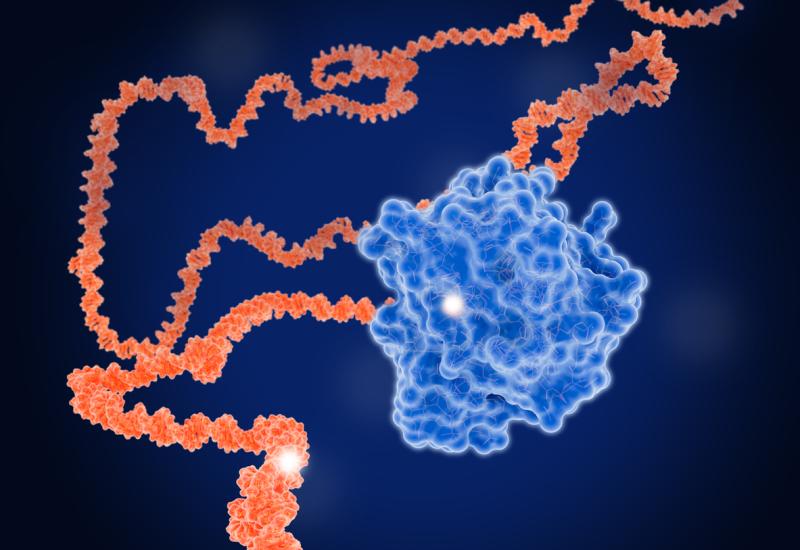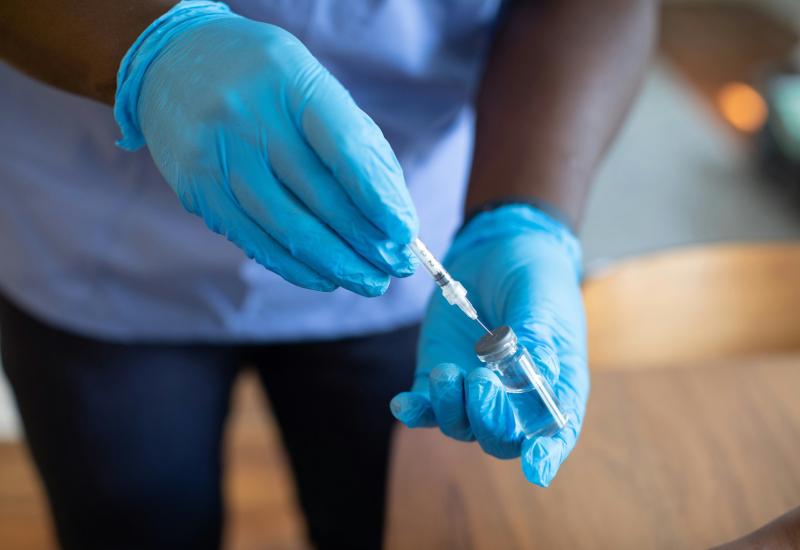
A bispecific encore, plus two in vivo Cars
First-in-human trial starts include 3SBio's SSGJ-708 and in vivo Car-Ts from Legend and Starna.
First-in-human trial starts include 3SBio's SSGJ-708 and in vivo Car-Ts from Legend and Starna.

Fresh from licensing its anti-PD-1 x VEGF antibody SSGJ-707 to Pfizer, and scoring a $1.25bn windfall in the process, 3SBio is taking another bispecific into the clinic. SSGJ-708 targets PD-1 x TGF-β, and its first-in-human solid tumour study begins on 16 June, a new listing on clinicaltrials.gov reveals.
The listings also reveal four notable immunotherapies entering phase 1: two target T and myeloid cells in novel ways, while two are in vivo Car-T therapies. The latter approach is relatively new, and marks a key avenue now being pursued by numerous companies, as the cell therapy space effectively stalled after the first approvals of autologous ex vivo Car-Ts.
A recent ApexOnco analysis revealed 15 separate in vivo Car-T projects, whose uniqueness concerns the generation of Car-expressing T cells within a patient's body, rather than through leukapheresis, ex vivo transfection and expansion, and reinfusion. Notable big pharmas here are Sanofi and AstraZeneca, via takeovers of Tidal and EsoBiotec respectively, and Novartis and AbbVie, through tie-ups with Vyriad and Umoja.
Subsequently Legend Biotech signalled its entry into this field through the in-house development of its first asset, LVIVO-TaVec100. It's this that has just started phase 1, in what appears to be a Chinese investigator-sponsored trial in which Legend is listed as a collaborator. It's not entirely clear how LVIVO-TaVec100 is delivered and what vector it uses, and its target remains undisclosed.
The second new clinical entrant is China's Starna Therapeutics with STR-P004, an in vivo Car that targets CD19; this uses "cell-selective" lipid nanoparticles to deliver mRNA to encode the Car. These two projects add to three in vivo Car-T therapies known already to be in human trials: Interius's INT2104, Umoja's UB-VV111 and Astra's ESO-T01.
Bispecific MAbs
In the sphere of more traditional approaches, 3SBio has a broad pipeline of cancer therapeutics, including MAbs, small molecules and ADCs, and in addition to the now Pfizer-partnered SSGJ-707 its clinical-stage bispecifics include MAbs that hit HER2 x PD-1 (SSGJ-705) and PD-1 x PD-L1 (SSGJ-706).
These are now being joined by SSGJ-708, which targets PD-1 x TGF-β. This is a somewhat risky approach, whose highest-profile failure has been Merck KGaA’s bintrafusp alfa, licensed to and then ditched by GSK. However, bintrafusp was based on the anti-PD-L1 MAb Bavencio, a drug seen as inferior to the likes of Keytruda, Opdivo and Tecentriq.
Recently disclosed first-in-human studies*
| Project | Mechanism | Company | Trial | Scheduled start |
|---|---|---|---|---|
| LVIVO-TaVec100 | Undisclosed in vivo Car-T | Legend | R/r B-cell malignancies | 23 May 2025 |
| CPT-6281 | GSPT1/SALL4/NEK7 degrader | Captor Therapeutics | Liver cancer | 26 May 2025 |
| DR-0202 | Undisclosed bispecific myeloid cell engager MAb | Dren Bio | Carcinomas | May 2025 |
| ETX-636 | PI3Kα inhibitor | Ensem Therapeutics | PIK3CAm solid tumours, incl HER2-ve breast cancer | 6 Jun 2025 |
| SSGJ-708 | PD-1 x TGF-β MAb | 3SBio | Solid tumours | 16 Jun 2025 |
| SHR-4712 | Undisclosed | Hengrui | Solid tumours | Jun 2025 |
| STR-P004 | CD19 in vivo Car-T | Starna Therapeutics | CD19+ve B-cell NHL | Jun 2025 |
| CBX-250 | Cathepsin G-HLA TCR mimetic | Crossbow Therapeutics | Crosscheck-001, A*02:01+ve AML, MDS or CML | Jul 2025 |
Note: *projects newly listed on the clinicaltrials.gov database between 28 May and 4 Jun 2025.
Other phase 1 entrants seeking novelty include Ensem with the PI3Kα inhibitor ETX-636. The race for selective PI3K inhibitors has seen Lilly take over Scorpion Therapeutics for the latter's wild-type sparing STX-478; ETX-636 is said by privately held Ensem to be, like STX-478, a mutant-selective molecule, in contrast to Lilly's now discontinued mutant-specific LOXO-783.
And two other private biotechs, Dren Bio and Crossbow Therapeutics, feature with immunotherapies. The former secured Novartis as a partner for the development of bispecific MAbs that engage myeloid cells. One myeloid cell engager that lies outside this deal is DR-0202 (target undisclosed), and this started phase 1 last month.
Crossbow's approach is more unusual still, and its lead project is CBX-250; this is a T-cell receptor mimetic that hits the cathepsin G peptide-HLA complex said to be expressed on leukaemic cells, and is designed to be specific for the A*02:01 HLA type. Its phase 1 study, Crossbow's first, starts in July.
This is important progress for Crossbow, which presented posters at AACR meetings in 2024 and 2025, but which apparently hasn't raised cash since an $80m series A round in July 2023.
2771













